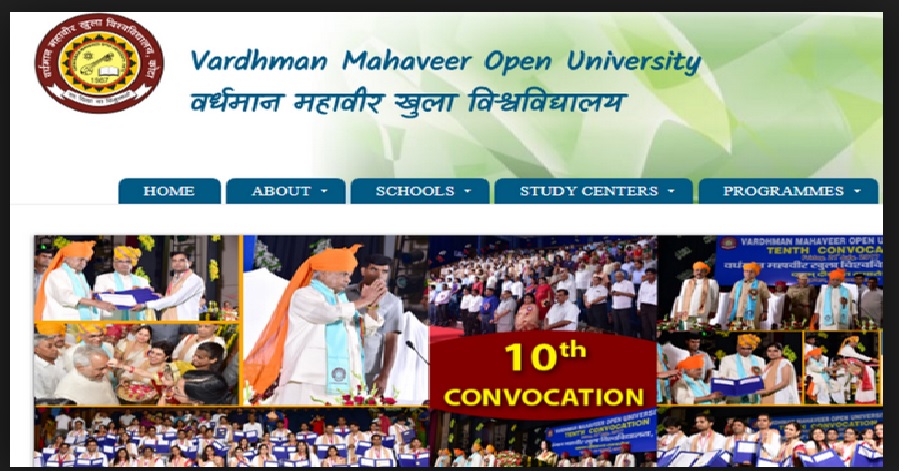BED01 Understanding Learner B.Ed Question Bank : vmou.ac.in
Name of the University : Vardhman Mahaveer Open University
Degree : B.Ed
Subject Code/Name : BED-01 – Understanding Learner
Document Type : Question Bank
Website : vmou.ac.in
Download Model/Sample Question Paper : https://www.pdfquestion.in/uploads/vmou.ac.in/3524-BED-01_171.pdf
VMOU Understanding Learner Question Paper
Time: 3 Hours
Max. Marks: 80
Note: The question paper is divided into three sections A, B & C. Write Answers as per the given instructions.
Related : Vardhman Mahaveer Open University BED02 Educational Technology B.Ed Question Bank : www.pdfquestion.in/3525.html
Set I
Section : A
Very Short Answer Type Questions :
1. Development indicate both qualitative and quantitative changes in human”-
2. Who is famous for the ‘Trial and Error’ theory of learning-
3. Learning theory of Skinner is presented in the form of “R-S Type”, why-
4. Who has classified trait in “Cardinal, Central and Secondary”-
5. Write the meaning of P95 (Percentile 95%) .
6. Who is known for ‘Experiential Learning Theory’ –
7. Whose work prepared the foundation of development of social constructivism-
8. Write four stages of cognitive development given by Piaget.

Section : B
Short Answer Type Question :
1. What is meant by Growth and Development-
2. Explain contiguous conditioning with suitable example.
3. Differentiate between ‘Cognitive constructivism’ and ‘Social Constructivism’.
4. Explain ‘Whole vs Part Method’ learning style.
5. Explain in brief the educational implications of intelligence measurement.
6. Explain in brief four stages of creative thinking.
7. Write briefly about the Moslow’s Theory of Motivation.
8. Describe briefly the theory of learning of David Ausubel.
Section : C
Longer Answer Questions :
1. Compare and contrast the learning theories of Pavlov, Thorndike and Skinner.
2. Discuss the needs of education to special group.
3. Discuss the role of autobiographical sketches, check list.
4. Define correlation. Compute rank difference correlation
Set II
Section : A
Very Short Answer Type Questions :
1) Learning theory of Pavlov is presented in the form of “S-R Type”, why-
2) Which learning theory prepared the basis for the development of programmed learning-
3) Write any four types of projective techniques of personality assessment.
4) What is ‘IQ’ (Intelligence Quotient)-
5) Compute the mode of given data : 8, 9, 17, 17, 17, 15, 15, 15, 21 and 22.
6) Write the ‘Hierarchy of Needs’ of Moslow.
7) Write name of three dimensions mentioned in theory of intelligence propounded
8) Write seven primary mental abilities obtained by Thurstone.
Section : B
Short Answer Type Question :
9. Explain ‘Concept Mapping’ learning style.
10. Describe factors influencing learning.
11. Distinguish between “Internal and Extrinsic motivation”.
12. Distinguish between Type Theory and Trait theory of personality.
13. What do you understand by ‘Multiple Intelligence’-
14. Describe in brief Thurston’s Group Factor Theory.
15. Which abilities have been introduced in creativity by Guilford-
16. How a teacher can identify creativity in his students- Explain briefly.
Section: C
Longer Answer Questions :
Note: Answer any two questions. You have to delimit your each answer maximum upto 800 words. Each question carries 16 marks.
5. Discuss the educational implication of the Gagne’s theory of Learning.
Or
Discuss the ‘Cognitive Development Theory’ of Jean Piaget.
6. Write types of learning. Discuss in detail any one learning styles.
Or
Define Motivation. Discuss different methods of motivating students.
7. Discuss non-projective techniques of assessment of personality.
Or
What is Intelligence?Examine the multifactor-theory of intelligence?
8. Define counselling. Listing types of counselling, discuss them in brief.
Or
Discuss the role of observation and anecdotal in counselling and guidance.
Set III
BED (Bachelor of Education)
Examination: BED-01
Understanding Learner
Time: 3 Hours
Max. Mark: 80
Note: The question paper is divided into three sections A, B, and C. Write answers as per given instructions.
Section: A
Very Short Answer Type Questions
Note: Answer all questions. As per the nature of the question you delimit your answer in one word, one sentence or maximum up to 30 words. Each question carries 2 marks. 8×2
17. Write any four types of non- projective techniques of personality assessment.
18. Who had propounded the ‘Two-Factor Theory’ of Intelligence?
19. Who had propounded the ‘Tri-Dimensional Theory’ of Intelligence?
20. Write the name of person who propounded one learning theory and awarded with Noble prize.
21. Write the name of any psychologist who have contributed in trait theory of personality.
22. Write the laws of learning made by Thorndike.
23. Write four projective techniques for assessment of personality?
24. Define ‘Range’.
Section: B
Short Answer Type Question
Note: Answer any 4 questions. Each answer should not exceed 100 words. Each questions question carries 8 marks. 4×8=32
17. Discuss the educational implication of Hull’s Systematic Behavioural Theory.
18. Discuss verbal and non-verbal tests of measurement of intelligence giving examples.
19. Explain in brief measuring intelligence using performance tests.
20. State different types of exceptional children.
21. What do you understand by Backward children? How do they differ from normal children?
22. Distinguish between counselling and guidance.
23. How individual difference can be measured by intelligence test?
24. Write briefly about learning cycle propounded by David Kolb.
Section: C
Longer Answer Questions
Note: Answer any two questions. You have to delimit your each answer maximum upto 800 words. Each question carries 16 marks.
9. What is meaning of constructivism? Discuss the principles of constructivism?
Or
Write different learning styles. Discuss in detail any two learning styles. Discuss projective techniques of assessment of personality.
10. Describe the process of identification of gifted children and their education.
Or
Discuss the role of interview and sociometry in counselling and guidance.
11. Defining concept of individual difference.Analyze the factors responsible for individual difference.
Or
Defining concept of individual difference. Discuss the measurement of individual differences.